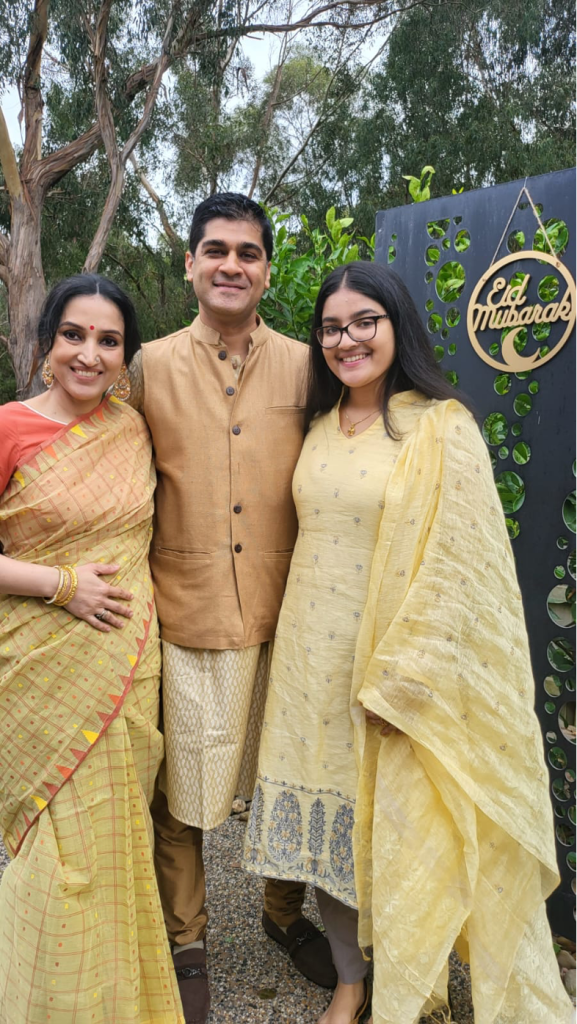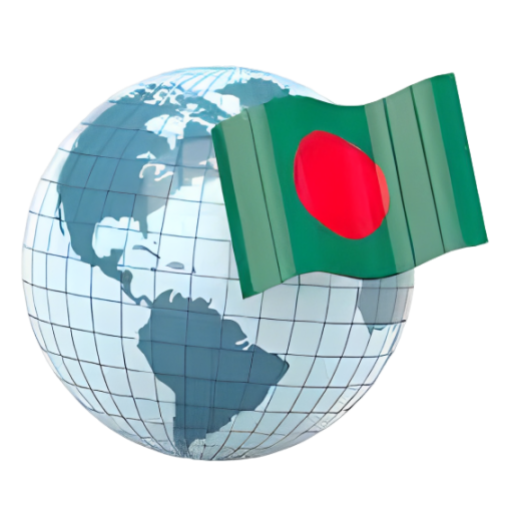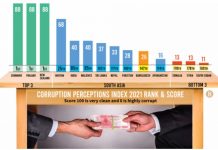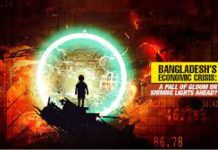My Christmas doesn’t come on December 25th. It doesn’t involve a Christmas tree, stories about Santa, or Michael Buble’s renditions of the Christmas classics. My Christmas – Eid – involves decorating our hands with henna on ‘Chaand Raat’ (the night before Eid), eating a lot of food and hosting and visiting the homes of friends during Eid and in the weekends afterwards as the celebrations continue. While the differences between the traditions and customs of the celebrations are vast, the key similarities between Eid and Christmas lie in the values of the celebrations – family, peace, love, spirituality and joy.

Growing up as a second-generation migrant has its unique set of challenges when it comes to cultural identity and connection. While I was born and am growing up in Melbourne, a part of my identity comes from the Bengali heritage my parents brought with them to Australia as international students many years ago. My identity is based upon a duality – two cultures, two languages, two types of cuisine, two different societal and cultural values. And over time, the two sides of my identity have melded together to create an entirely new culture that can be ‘inauthentic’ to the original, and rather isolating because no-one ‘blends cultures’ in exactly the same way.
However, celebrations like Eid, which is coming up this weekend, are special, not just because it’s the festival celebrating the end of Ramadan (fasting month), but because it helps me better understand, reflect and consider who I am and what matters to me.
The Eid I celebrate is not the exact same as the stories my parents have told me of Eid in Bangladesh – ‘hopping’ between the homes of their relatives, trying delicacy after delicacy; or going shopping during Ramadan, searching through boutique after boutique to find your perfect brand new Eid outfit.
But my Eid is no less special. My Eid is my family hosting an ‘open house’ party every year, with around 150 guests coming and going, eating and laughing – a conscious decision and effort from my parents to help me feel connected to my culture and community. I don’t get to celebrate Eid with my blood relatives because mine are all overseas, but I celebrate with people who have watched me grow up with so much love, they feel like blood relatives to me. Instead of going shopping during Ramadan, I watch my grandmas buy ‘salwar-kameez’ (traditional dress for South Asian women involving trousers – ‘salwar’, tunic – ‘kameez’, and scarf – ‘dupatta’) over FaceTime six months in advance, or buy enough for the next three Eids when I travel to my heritage country.

To me, Eid not only celebrates family, love, and spirituality, but also celebrates the new lives my parents created in their adopted country starting 23 years ago.
Yet, one of the unique challenges of growing up in a society where you are ‘different’ is having your celebration and its importance to you unknown in many cases, and unacknowledged in others.
It does mean a lot to people like me to see Anthony Albanese or Dan Andrews wishing the community ‘Eid Mubarak’, or Medjool dates front and centre of the supermarket fruit display during Ramadan, or even an Eid-ul-Fitr sale at David Jones. Though they are quite significant developments from when my parents first came to Australia as international students, and even from when I was little, this is just the beginning.
For many migrant families, celebrating Eid can still be a challenge. In my own experience, when an important school trip coincided with Eid, I had to make the difficult choice between my family celebration and my academic development. I have had to choose between attending conferences, events and concerts for school, and celebrating Eid. And I know this experience is shared with many young people from culturally diverse backgrounds, even with NAPLAN coinciding with Eid in 2021.
There are still people who have to justify to their university or workplace why they need to shift commitments or request leave so they can spend that time with their family. There are people who feel self-conscious or hesitant to ask for this support, built on the migrant family principles of ‘assimilation’ or worry of being an ‘inconvenience’.
I have seen from my own experiences the importance of starting conversations within the wider community about our celebrations, to further foster this attitude of pride and respect towards celebrations of all cultures and religions. In my primary school days, I remember explaining every time it came up in conversation what Eid is, what it means to my family, and why Santa doesn’t come down my family’s chimney on Christmas Eve.
By the time I finished high school, my friends would come up to me in the weeks leading up to Eid, not only understanding what it means to me and my family, but asking how big the party was going to be that year and what I was planning to wear. This change took effort; in the form of patient conversation, but was definitely encouraged by the Eid cookies my mum sent to school with me every year!
Seeing my family take pride in Eid, and therefore our culture and religion, has meant so much to me. I have had the privilege, not only of learning the personal value and importance of Eid, but also feeling empowered to share the joy and love of Eid with the wider community.
So, as the new moon approaches, I know that those who celebrate are counting down the days until the transition between fasting and feasting. We will be decorating our hands with henna, getting our homes and outfits ready, cooking delicious food and paying our respects to our elders while hoping for some ‘Eidi’ (cash that is subtly slipped into your hand by a generous Uncle or Aunty).
Eid Mubarak to all those who celebrate, and to those who don’t – may the love, peace and joy of this celebration pass on to you and your family.
This article was originally published in The Sydney Morning Herald, 22 April 2023.

Ahelee Rahman is in her first year of a Bachelor of Biomedicine at the University of Melbourne. She is Senior Youth Ambassador, producer and host for the Student Broadcast Network on radio station 94.1FM 3WBC, board member of youth organisation ‘Spill the Beans’ and Lead Facilitator of the Victorian Multicultural Commission’s Multicultural Youth Network. She is also a passionate advocate of the perspectives of young Australians and multicultural communities within democracy, as a regular contributor and commentator on mainstream Australian newspapers like The Age Newspaper and ABC Radio Melbourne.






